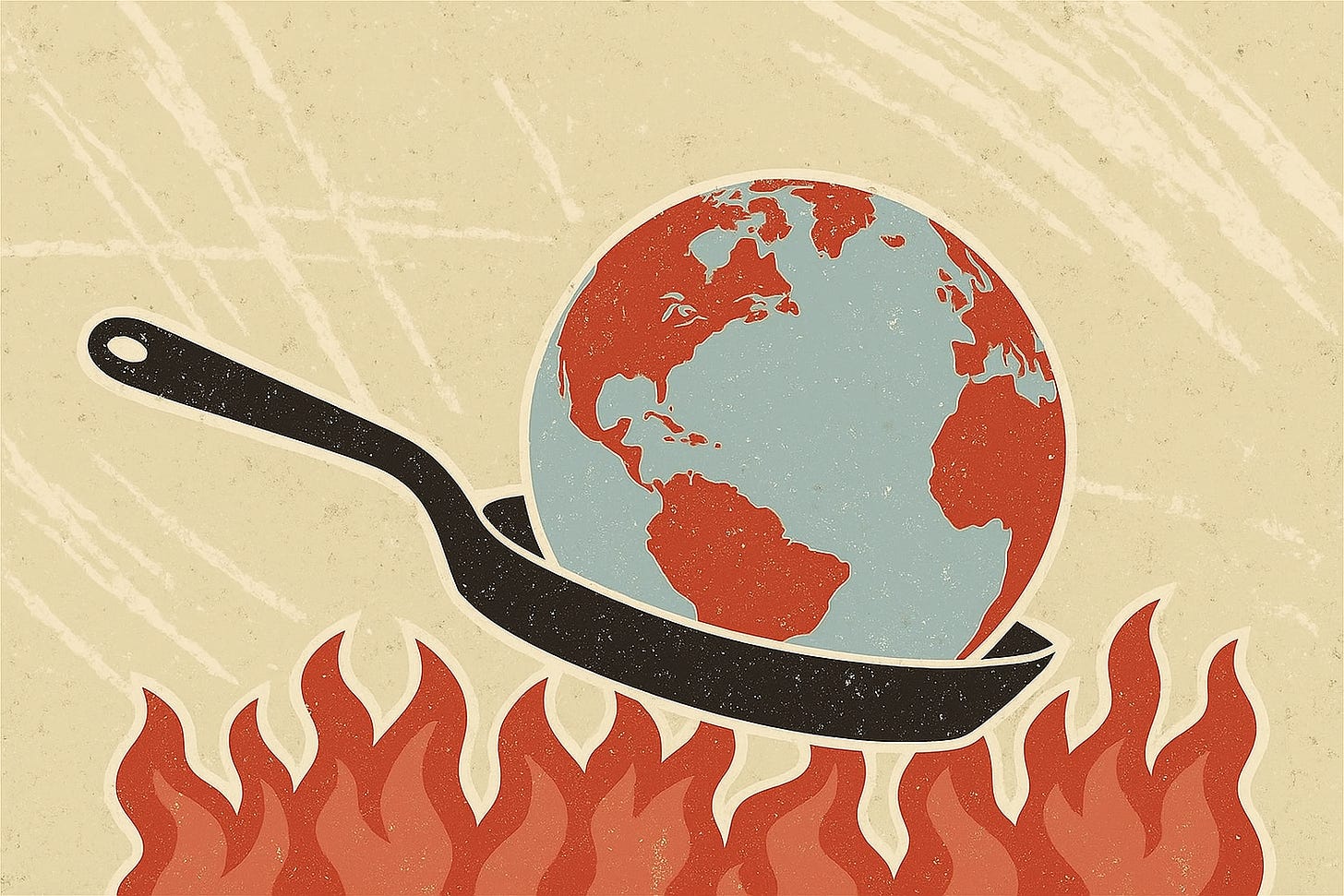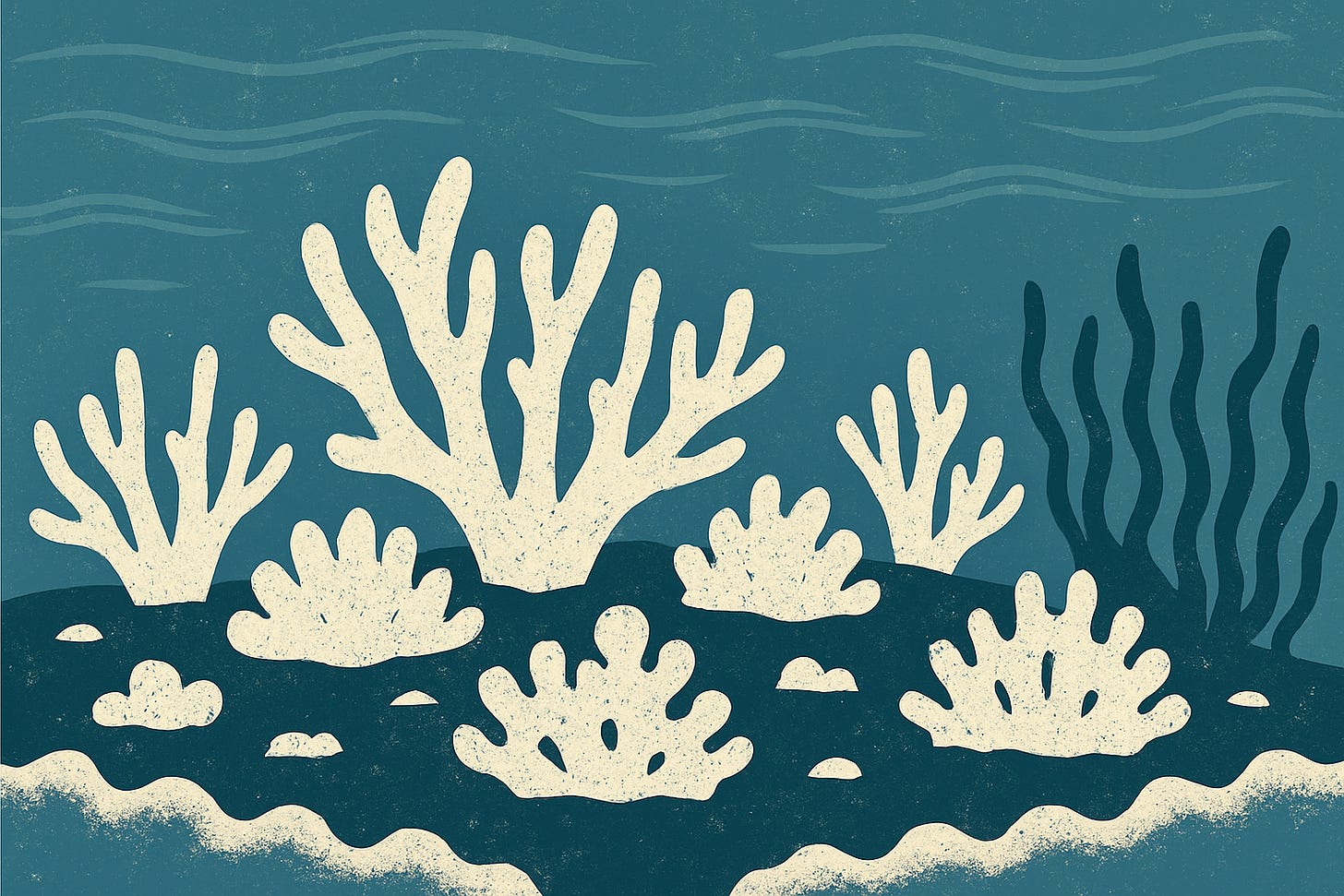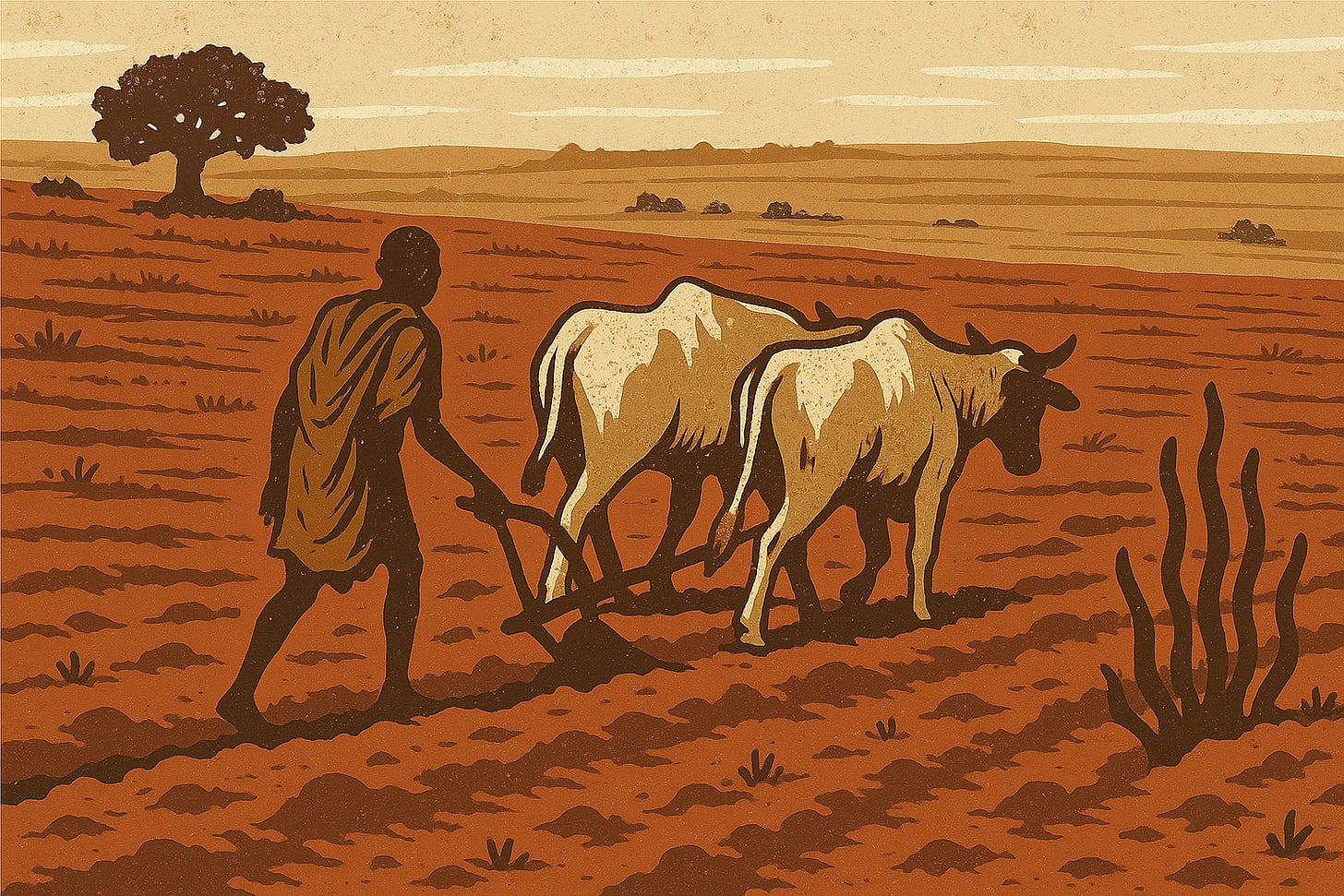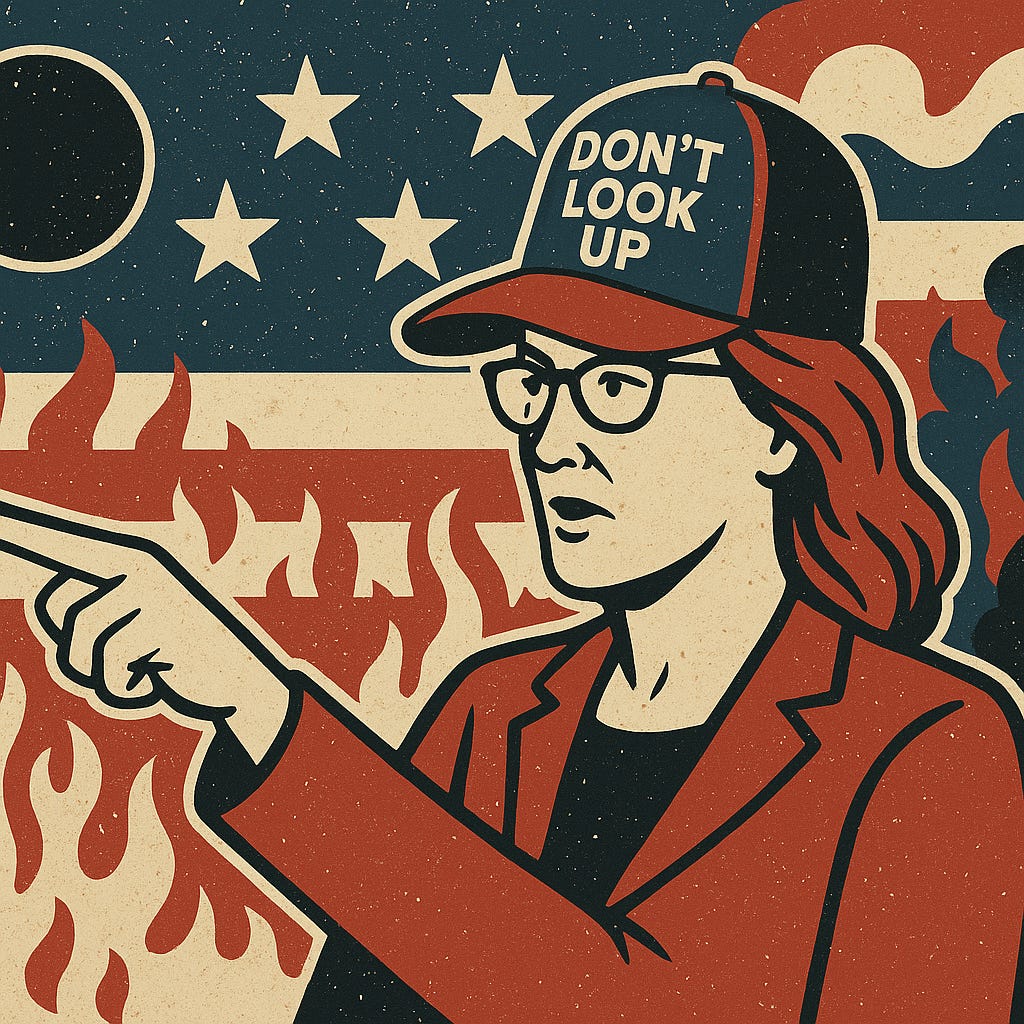Why “Saving the Planet” Is the Wrong Goal
The phrase is comforting, but misleading. This isn’t about Earth’s survival... it’s about ours.
My career has been about protecting our oceans, the species that call them home and the fragile ecosystems they support.
But... what if I've been framing this wrong?
This morning, whilst settling into my first coffee of the day (it was definitely my third - but my issues around caffeine are a blog for another time), I flicked past GB News, something I rarely linger on... but I paused when one presenter dismissed the hottest years on record and mass coral bleaching with: “It’s been hotter before, the coral will come back.”
That mindset is precisely why we won’t be fine.
Yes, the Earth has been hotter before, but never this fast, and never with 8 billion people depending on climate stability for food, water, and survival. NASA data shows today’s warming is ten times faster than at the end of the last Ice Age. The last time atmospheric CO₂ was this high, humans didn’t even exist.
We often talk about "saving the planet”, but here’s an uncomfortable phrase that might make people start taking notice:
The planet doesn’t need saving. We do.
In Alan Weisman’s The World Without Us, and follow-up ecological modelling, we see that if humans disappeared today, nature would begin to recover almost immediately. Forests would reclaim cities. Coral reefs, free from warming and acidification, might regenerate. The air would clear. Species would rebound.
The Earth would recover. Without us.
So what are we really trying to protect?
Our food systems. Our water. Our cities. Our families. Our future. Climate change is already fuelling instability, indeed the Lancet Countdown shows it’s worsening health outcomes globally. And the IPCC (Intergovernmental Panel on Climate Change) warns that with just 2°C of warming, hundreds of millions will face chronic water scarcity, 3 billion could be displaced and global crop yields could collapse by a quarter.
Of course, we don’t want mass extinctions on our watch, but guilt alone won’t drive change.
So, what if we reframed the message?
Would it not be more beneficial to not be driven by a noble mission to protect nature, but instead be motivated by survival?
What if, instead of focusing only on melting glaciers, forest fires, or coral bleaching, we spoke more about rising food prices, disappearing coastlines, respiratory illness from heat and pollution, disease, death and human extinction? What if we made this a story about us?
Would that make people pay attention? Would that unlock the urgency?
This isn’t just about biodiversity loss. It’s about saving everything we love: Our homes. Our children. Our cultures. Our oceans.
We’re living through an era of cognitive dissonance, we know the science, but we carry on as if someone else will fix it. Many of us, understandably, are just trying to get through the week, but the species-wide immortality complex (the belief that we’ll always find a way or that someone else with solve the problem) is holding us back from the systemic action we need.
The 2021 movie Don’t Look Up skewered this brilliantly (if you haven't seen it, put it at the top of your watch list). The world is warned of a planet-killing comet. The science is certain. But politicians delay, billionaires scheme and the media spins.
“We’re all 100% for sure gonna die,” says Jennifer Lawrence’s character.
...and still nothing changes.
It’s satire, but it’s also reality. ExxonMobil scientists accurately predicted global warming in the 1970s and the company spent decades lobbying to prevent climate action.
We must change the story. This isn’t about whales or forests, instead of people. It’s about understanding that if we focus on protecting people, everything else, our oceans, our rainforests, our wildlife, benefits too.
A world that’s safe for humans is a world where ecosystems can thrive.
So, before we race to find water on Mars, maybe we should protect the water we already have. Before we terraform other planets, maybe we should remember how to care for this one, because we’re not just trying to save the planet.
We’re trying to save ourselves.






